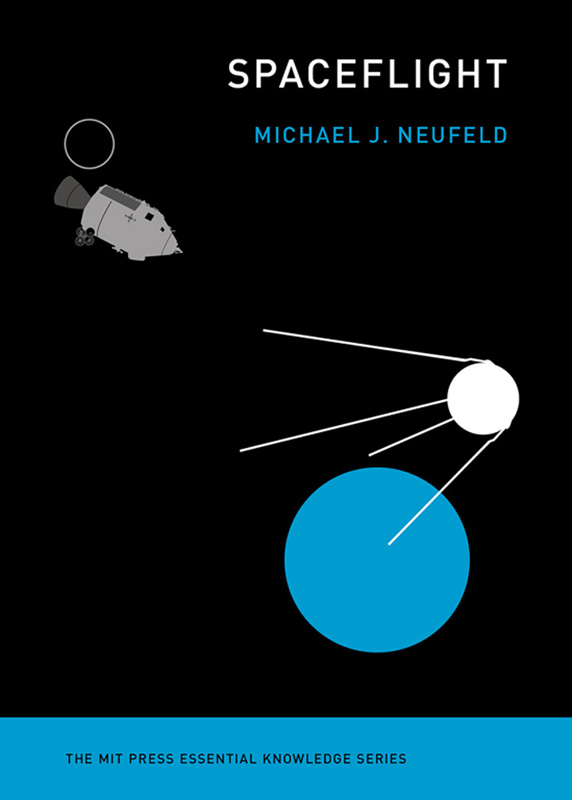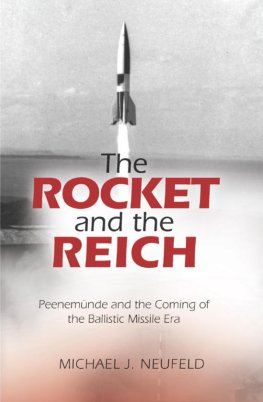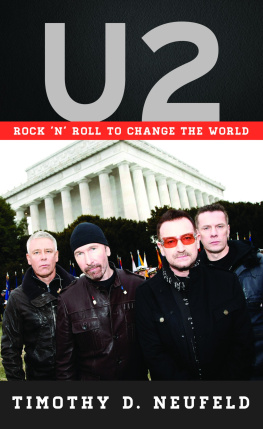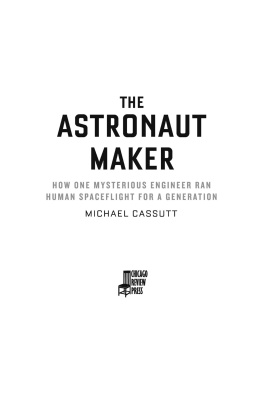Michael Neufeld - Spaceflight : A Concise History
Here you can read online Michael Neufeld - Spaceflight : A Concise History full text of the book (entire story) in english for free. Download pdf and epub, get meaning, cover and reviews about this ebook. year: 2018, publisher: MIT Press, genre: Politics. Description of the work, (preface) as well as reviews are available. Best literature library LitArk.com created for fans of good reading and offers a wide selection of genres:
Romance novel
Science fiction
Adventure
Detective
Science
History
Home and family
Prose
Art
Politics
Computer
Non-fiction
Religion
Business
Children
Humor
Choose a favorite category and find really read worthwhile books. Enjoy immersion in the world of imagination, feel the emotions of the characters or learn something new for yourself, make an fascinating discovery.

- Book:Spaceflight : A Concise History
- Author:
- Publisher:MIT Press
- Genre:
- Year:2018
- Rating:4 / 5
- Favourites:Add to favourites
- Your mark:
- 80
- 1
- 2
- 3
- 4
- 5
Spaceflight : A Concise History: summary, description and annotation
We offer to read an annotation, description, summary or preface (depends on what the author of the book "Spaceflight : A Concise History" wrote himself). If you haven't found the necessary information about the book — write in the comments, we will try to find it.
Spaceflight : A Concise History — read online for free the complete book (whole text) full work
Below is the text of the book, divided by pages. System saving the place of the last page read, allows you to conveniently read the book "Spaceflight : A Concise History" online for free, without having to search again every time where you left off. Put a bookmark, and you can go to the page where you finished reading at any time.
Font size:
Interval:
Bookmark:

The MIT Press Essential Knowledge Series
Auctions, Timothy P. Hubbard and Harry J. Paarsch
The Book, Amaranth Borsuk
Carbon Capture, Howard J. Herzog
Cloud Computing, Nayan Ruparelia
Computing: A Concise History, Paul E. Ceruzzi
The Conscious Mind, Zoltan L. Torey
Crowdsourcing, Daren C. Brabham
Data Science, John D. Kelleher and Brendan Tierney
Extremism, J. M. Berger
Free Will, Mark Balaguer
The Future, Nick Montfort
GPS: A Concise History, Paul E. Ceruzzi
Haptics, Lynette A. Jones
Information and Society, Michael Buckland
Information and the Modern Corporation, James W. Cortada
Intellectual Property Strategy, John Palfrey
The Internet of Things, Samuel Greengard
Machine Learning: The New AI, Ethem Alpaydin
Machine Translation, Thierry Poibeau
Memes in Digital Culture, Limor Shifman
Metadata, Jeffrey Pomerantz
The MindBody Problem, Jonathan Westphal
MOOCs, Jonathan Haber
Neuroplasticity, Moheb Costandi
Open Access, Peter Suber
Paradox, Margaret Cuonzo
Post-Truth, Lee McIntyre
Robots, John Jordan
Self-Tracking, Gina Neff and Dawn Nafus
School Choice, David R. Garcia
Spaceflight: A Concise History, Michael J. Neufeld
Sustainability, Kent E. Portney
Synesthesia, Richard E. Cytowic
The Technological Singularity, Murray Shanahan
Understanding Beliefs, Nils J. Nilsson
Waves, Frederic Raichlen
2018 Smithsonian Institution
All rights reserved. No part of this book may be reproduced in any form by any electronic or mechanical means (including photocopying, recording, or information storage and retrieval) without permission in writing from the publisher.
This book was set in Chaparral Pro by Toppan Best-set Premedia Limited. Printed and bound in the United States of America.
Library of Congress Cataloging-in-Publication Data
Names: Neufeld, Michael J., 1951- author.
Title: Spaceflight : a concise history / Michael J. Neufeld.
Other titles: Space flight
Description: Cambridge, MA : The MIT Press, [2018] | Series: The MIT Press
essential knowledge series | Includes bibliographical references and index.
Identifiers: LCCN 2018013488 | ISBN 9780262536332 (pbk. : alk. paper)
eISBN 9780262350440
Subjects: LCSH: Space flight--History. | Astronautics--United
States--History. | Astronautics--Soviet Union--History. |
Astronautics--Russia (Federation) | Space race--United States--History. |
Space race--Soviet Union--History. | Manned space flight--History.
Classification: LCC TL788.5 .N48 2018 | DDC 629.4/109--dc23 LC record available at https://lccn.loc.gov/2018013488
ePub Version 1.0
d_r0
Series Foreword
The MIT Press Essential Knowledge series offers accessible, concise, beautifully produced pocket-size books on topics of current interest. Written by leading thinkers, the books in this series deliver expert overviews of subjects that range from the cultural and the historical to the scientific and the technical.
In todays era of instant information gratification, we have ready access to opinions, rationalizations, and superficial descriptions. Much harder to come by is the foundational knowledge that informs a principled understanding of the world. Essential Knowledge books fill that need. Synthesizing specialized subject matter for nonspecialists and engaging critical topics through fundamentals, each of these compact volumes offers readers a point of access to complex ideas.
Bruce Tidor
Professor of Biological Engineering and Computer Science
Massachusetts Institute of Technology
Introduction
Spaceflight is one of the greatest human achievements of the twentieth century. In 1900, only one or two persons in the world understood that the rocket could make space travel possible. Scarcely four decades later, German V-2 missiles began flying beyond the atmosphere. By 1963, the Soviet Union had launched the first satellites, hit the Moon, and put the first man and the first woman into Earth orbit. At the end of that decade, American astronauts orbited and then landed on the Moon. U.S. and Soviet robots reached the surface of Venus and Mars by the 1970s, and by 1989, American spacecraft had flown by all eight major planets. Four of those travelers were flung on one-way trips into interstellar space, the first human-made objects to leave not just Earths gravitational influence, but even that of the Sun.
That direct exploration of the cosmos, in tandem with space-based and Earth-bound telescopes, has transformed human understanding of our planet, solar system, and universe. And yet exploration has been far from the only, or even dominant, reason we have gone into space. The great majority of spacecraft orbit Earth to provide services to, or gather information about, the planet. Since the 1960s, we have effectively annexed near-Earth space, from the twenty-four orbit at 22,200 miles (35,800 km) on down, and created a new zone of government and economic activity. What is done there is now essential to daily life, especially in the developed world, by providing global communications, satellite navigation, weather observation, military reconnaissance, missile early warning, Earth science, etc. The result is a growing but virtually invisible space infrastructure.
For many, the space program is still equated with human spaceflight. Yet astronauts have traveled less than about 400 miles (650 km) from Earths surface since the last Apollo lunar mission in December 1972. That is expected to change in the 2020s, but whether that will lead to a vibrant future of Moon bases or Mars expeditions is an open question. And while important lessons have been learned in the nearly half century that spacefarers have only been in low Earth orbit (LEO), the rate of technological change, and of achievement, in human spaceflight pales in comparison to both deep-space robotic exploration and near-space infrastructure. Thus one of my primary purposes in this brief overview is to introduce educated lay readers to the full spectrum of activities that we humans have developed in space, and to the effects that has had on consciousness and culture.
A history also must describe origins and causes, not just the events and their effects. The human imagination and drive to explore certainly have something to do with spaceflight, but any activity out there costs a lot of money. Early in the twentieth century, amateur enthusiasm quickly gave way to international arms races and war as the primary drivers of development. Military and national security missions continue to be a very large part of what happens in Earth orbit. Garnering prestige and signaling technological strength has also been absolutely critical, especially for human spaceflight during the Cold War, but also afterward. And commercial competition and profit entered into the equation in the 1960s, at first only with communications satellites. Late in the Cold War, corporate activity began to expand into other sectors, and by the 2000s, even into human spaceflight.
Because nation-states have been the primary actors in this realm, space history is often written as a history of national programs, or of cooperative programs between states. That drives much of the narrative in this book, particularly in the first three chapters, which tell the story of the origins of space ideas and technology, the Cold War space race, and space science and exploration (which is a Cold War by-product). But transnational movements of people, ideas, and technology have always been part of the spaceflight story, and have grown in importance as corporations and new nations have taken on a larger role since the end of the Cold War. In the last three chapters, I discuss growth of a global space infrastructure (military and civilian), the rise of a global astroculture, and the internationalization and privatization of human spaceflight after the Cold War. The global integration of world economies and political systems is the foundation for some of these changes, but spaceflight also impacts the process and rate of globalization, by influencing, among other things, the planets culture and its networks of communication.
Font size:
Interval:
Bookmark:
Similar books «Spaceflight : A Concise History»
Look at similar books to Spaceflight : A Concise History. We have selected literature similar in name and meaning in the hope of providing readers with more options to find new, interesting, not yet read works.
Discussion, reviews of the book Spaceflight : A Concise History and just readers' own opinions. Leave your comments, write what you think about the work, its meaning or the main characters. Specify what exactly you liked and what you didn't like, and why you think so.







